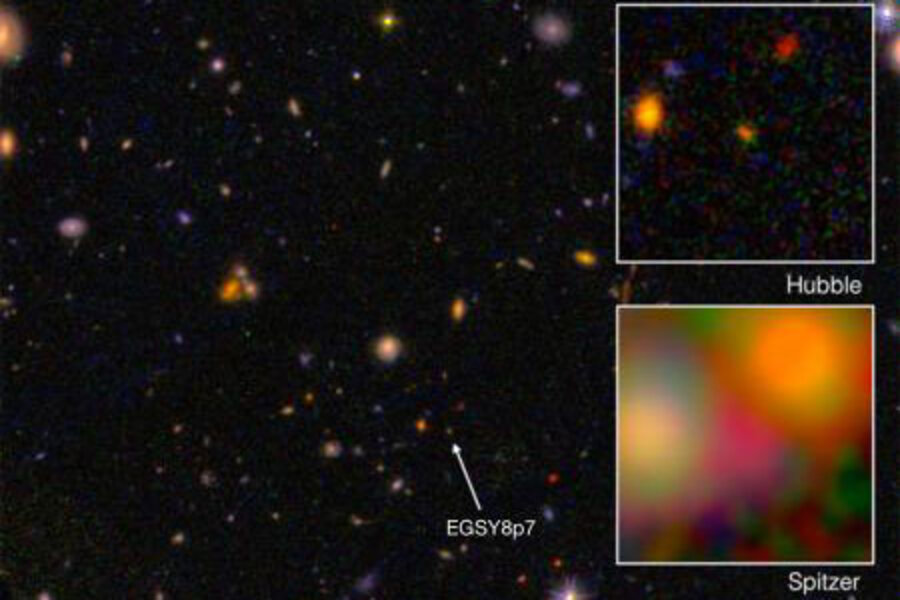At 13.2 billion years, this galaxy is almost as old as the universe itself
Loading...
A team of researchers has just detected what may be the most distant and oldest galaxy ever found, called EGS8p7.
The galaxy is more than 13.2 billion years old, not much younger then the universe itself, which is believed to be 13.8 billion years old.
A team of astronomers at the California Institute of Technology first identified the galaxy as a point of further investigation earlier this year, when it spotted EGS8p7 in data collected by NASA’s Hubble Space Telescope and the Spitzer Space Telescope. The team published their findings in Astrophysical Journal Letters last month.
A statement from the university said the group has been searching for the earliest objects in the universe for years. Using the MOSFIRE instrument, a spectrometer that allows astronomers to study several galaxies at once, researchers determined that it was likely the farthest galaxy ever detected from Earth.
Astronomers use a redshift measurement to determine distance to galaxies. EGS8p7's redshift was 8.68. Before that, the farthest detected galaxy had a redshift of 7.73.
Already, EGS8p7 is challenging some assumptions about the early universe. The newly identified galaxy appears to be unusually bright, contradicting the belief that the early universe was extremely dark due to an abundance of neutral hydrogen, reports Tech Times. Astronomers believe that darkness lasted for about a billion years.
“The surprising aspect about the present discovery is that we have detected this Lyman-alpha line in an apparently faint galaxy at a redshift of 8.68, corresponding to a time when the universe should be full of absorbing hydrogen clouds,” said Richard Ellis, a professor of astrophysics at University College London who recently retired from Cal Tech, in the statement.
One theory that reconciles this seeming discrepancy suggests “that the reionization process probably is patchy,” said Adi Zitrin, a NASA Hubble Postdoctoral Scholar in Astronomy.
Another possible explanation is that the galaxy contains “a population of unusually hot stars,” said Sirio Belli, a Caltech graduate student who worked on the project. “And it may have special properties that enabled it to create a large bubble of ionized hydrogen much earlier than is possible for more typical galaxies at these times.”
Mr. Zitrin said the team is “currently calculating more thoroughly the exact chances of finding this galaxy and seeing this emission from it, and to understand whether we need to revise the timeline of the reionization.”
This is “one of the major key questions to answer in our understanding of the evolution of the universe,” he said.








